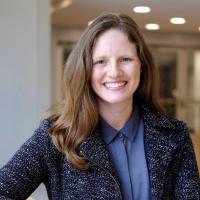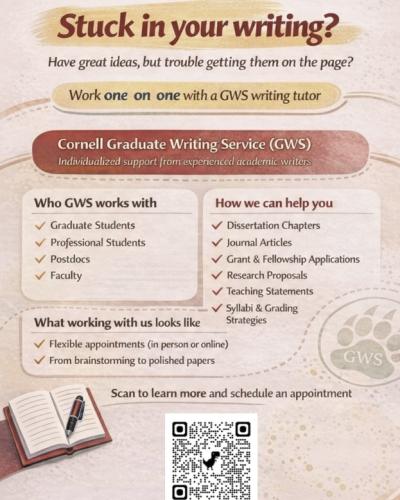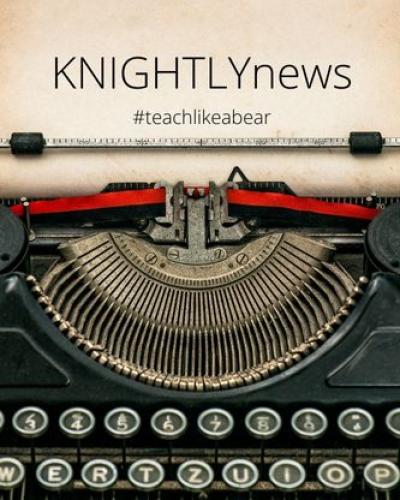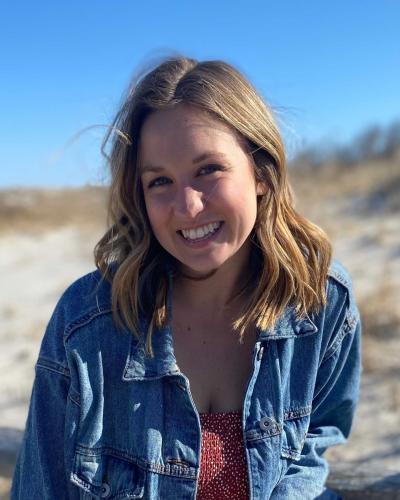Congratulations to this year's Buttrick-Crippen Winners! Doctoral candidate Kristie LeBeau, Global Development, was selected as the winner of the 23/24 Buttrick-Crippen Fellowship. Alexandra Cooperstock, Sociology, and Stephen Fodroczi, Classics, were named as honorable mentions.
The Buttrick-Crippen Fellowship provides a full year of support during which the Fellow can devote themselves to the study and practice of teaching composition within and beyond the context of their discipline. The Buttrick-Crippen Fellow will spend the fall semester preparing a new First-Year Writing Seminar for the John S. Knight Institute for Writing in the Disciplines and will teach that seminar in the spring.
Here are descriptions of their exciting First-Year Writing Seminars:
Kristie LeBeau, Global Development, “Who Decides? Decision Making in the US Education System”
Debates about who decides what books students should read, who has a say in what version of history is taught, and who shapes school choice policy is all over the news and is ever present in first year students’ own K-12 schooling experiences. And yet, this is not a recent phenomenon. As Aristotle once debated, it is unclear whether “education ought to be directed more towards the intellect than towards the character of the soul.”1 United States history is filled with tension between professional school leaders and local communities involving questions around the purpose of schooling: Are schools for job-training? Advancing democracy? Socialization? What should students be taught in schools? And most importantly, who decides? This course will explore key tensions within the education system and between schools and the communities they serve. Chief amongst our course activities is establishing analytic reading skills and clear writing techniques. Why? So students can be effective communicators in debates such as these and beyond. Assignments in this course will help students gain proficiency in key debates related to public schools. In-class writing workshops will be designed to foster mutual respect as students discuss contentious subjects. Students will not be assessed on their personal view or politics, but rather, their ability to articulate their argument with evidence-based writing. This approach will encourage them to consider perspectives other than their own. By developing students’ communication skills, this class will give students the opportunity to enter these conversations as informed communicators.
Alexandra Cooperstock, Sociology, “Education in the United States: Engines of Inequality, Ladders for Opportunity, and Striving for Change”
Do schools ameliorate or perpetuate social inequality in our society? What educationinterventions are poised to make the biggest impact for students and theirachievement? This course will explore the history of K-12 education in the U.S. with an emphasis on reform efforts taken over the past four decades and during the coronavirus pandemic. We will draft and revise papers on topics such as: the achievement gap; vouchers, school choice, and charter school systems; standardized testing and school accountability; and alternative teacher licensureprograms like Teach for America. This course will equip students with the skills to interpret social science research, write compelling academic papers, and craft informed responses to arguments in the news or popular media about schoolingand society.
Stephen Fodroczi, Classics, “Ancient Underworlds, Fresh Hells”
Throughout literary history from Dante’s Divina Comedia to Homer’s Odyssey to the recent television show Stranger Things, people have long been fascinated with going to underworlds and hellscapes. Whether it be to rescue a loved one, commune with the dead, or to display heroic virtue, characters have been undergoing katabases, or “descents”, from as early as the Epic of Gilgamesh. The perspectives on such descents are varied: from mythical poetry to religious texts to political commentary or even satirical critiques, the genre of katabatic narratives has remained of interest to readers and consumers of media perpetually and across cultures. Merely within the Greco-Roman tradition, such recent works such as the hit Broadway musical Hadestown and the hit web comic series Lore Olympus reconfigure mythical stories with modern themes and motifs, infusing the stories with modern interpretations of what a journey to the underworld constitutes, and who gets to perform such a journey. However, this literary phenomenon is not exclusive to the western traditions, as shown within the Japanese Kojiki, the Mayan Popol Vuh, the Ancient Indian Mahabharata, the Ohlone tale of Kaknu Fights Body of Stone, and the Ojibwe mythology of Obatala—each of traditions feature katabatic narrative. Whether it be a fascination towards death or a refusal to grieve your loved ones, literary traditions have produced these katabases despite geographical, chronological, and cultural differences. It is for this reason that we must ask the questions: Why do we return to hell? And what does journeying there signify? And what can we learn about these the cultures and societies that produced these narratives and their attitudes towards mortality? From the strong intertextual Greco-Roman tradition of these narrative types, to the omnipresence of this plot device across origins, to the increased proliferation of transmedial modern katabases, underworlds old and new serve as the perfect background for a student’s intellectual curiosity and aptitude for varied works of writing.







